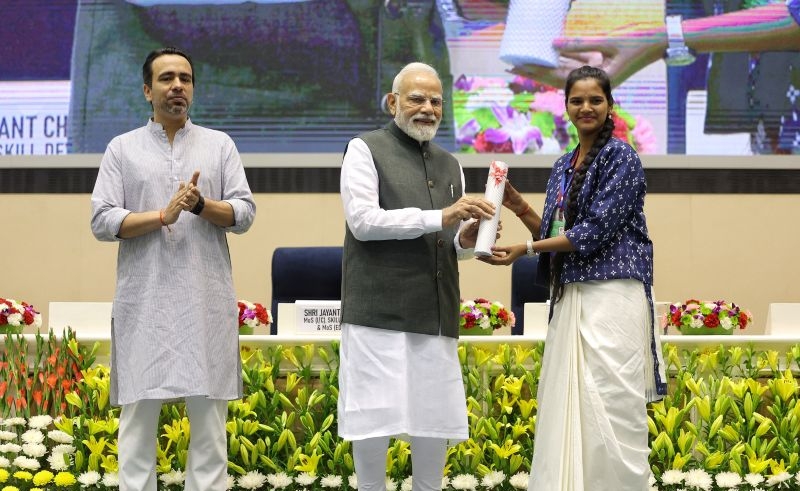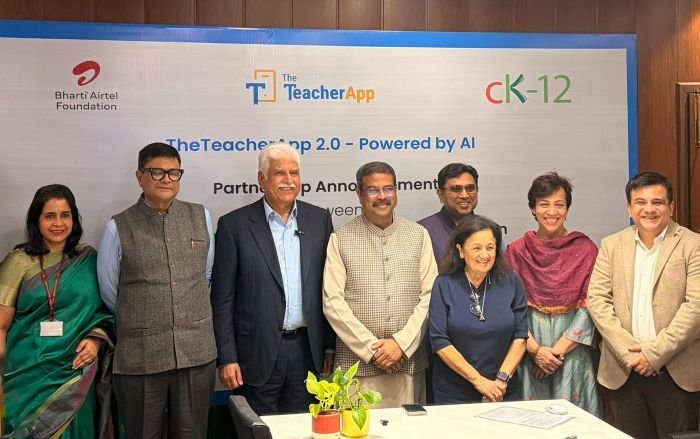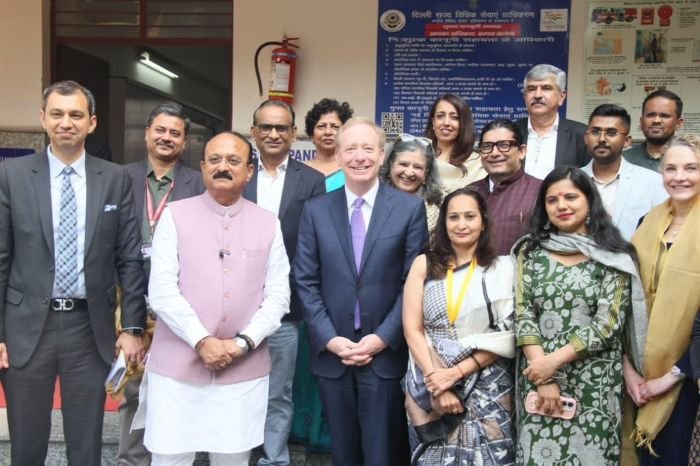
In a landmark initiative for youth development giving a decisive push to education, skilling, and entrepreneurship across the country, Prime Minister Shri Narendra Modi on October 4 announced the Pradhan Mantri Skilling and Employability Transformation through Upgraded ITIs (PM-SETU), a centrally sponsored scheme with an investment of ₹60,000 crore. The initiative aims to modernize 1,000 Government ITIs across the country through a hub-and-spoke model comprising 200 hub ITIs and 800 spoke ITIs.
Each hub will be connected to an average of four spokes, creating clusters equipped with advanced infrastructure, modern trades, digital learning systems, and incubation facilities. Anchor Industry Partners will manage these clusters, ensuring outcome-based skilling aligned with market needs. In its first phase, the scheme will place special emphasis on ITIs in Patna and Darbhanga, with global co-financing support from the World Bank and Asian Development Bank.
Underscoring the government’s vision, the Prime Minister said the PM-SETU scheme and associated initiatives will not only upgrade India’s skilling ecosystem but also connect youth with global skill requirements.
The Prime Minister unveiled a series of youth-centric programmes during the celebration of the Kaushal Deekshant Samaroh, the fourth edition of the National Skill Convocation at Vigyan Bhawan, New Delhi, where 46 All India Toppers from Industrial Training Institutes (ITIs) under the Ministry of Skill Development and Entrepreneurship were felicitated.
The Prime Minister also inaugurated 1,200 Vocational Skill Labs in 400 Navodaya Vidyalayas and 200 Eklavya Model Residential Schools spread across 34 States and Union Territories. Designed to impart hands-on training in 12 high-demand sectors such as IT, agriculture, automotive, logistics, and tourism, the labs will also train 1,200 vocational teachers to deliver industry-relevant education. Aligned with the National Education Policy 2020, the initiative seeks to create an early foundation for employability, particularly in rural and tribal areas.
Another major highlight was the inauguration of the Jan Nayak Karpoori Thakur Skill University in Bihar, envisioned to deliver industry-oriented courses and vocational education, preparing a globally competitive workforce.
Speaking at the event, the Prime Minister stressed that “India is a nation of knowledge and skill, and this intellectual strength is its greatest asset.” He noted that ITIs currently offer training in nearly 170 trades, and over the past 11 years, more than 1.5 crore youth have gained technical qualifications.
He proudly pointed out that training is offered in local languages, ensuring accessibility for all. This year alone, over 10 lakh students appeared for the All India Trade Test, with more than 45 toppers being felicitated during the event.
“India’s ITIs are not only premier institutions for industrial education but also serve as workshops for building an Atmanirbhar Bharat,” Shri Modi said, recalling that while there were only 10,000 ITIs in 2014, nearly 5,000 more have been established in the last decade. With a focus on local resources, knowledge, and talent, Shri Modi reiterated that India’s youth are poised to play a pivotal role in making the nation a global hub of innovation, manufacturing, and skilled manpower.
The Prime Minister highlighted India’s rapid transformation from being one of the “Fragile Five” economies to advancing toward becoming a top-three global economy. He pointed to unprecedented growth in manufacturing and exports of electronics, automobiles, defence, and mobile phones, which has fueled large-scale job creation.
He also emphasized the role of Mudra loans in enabling crores of young entrepreneurs to establish their own ventures. Adding further impetus, Shri Modi announced the launch of the ₹1 lakh crore Pradhan Mantri Viksit Bharat Rozgar Yojana, expected to assist 3.5 crore youth in securing private-sector employment.







